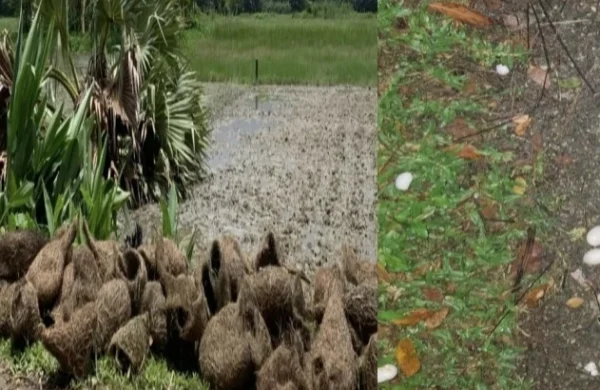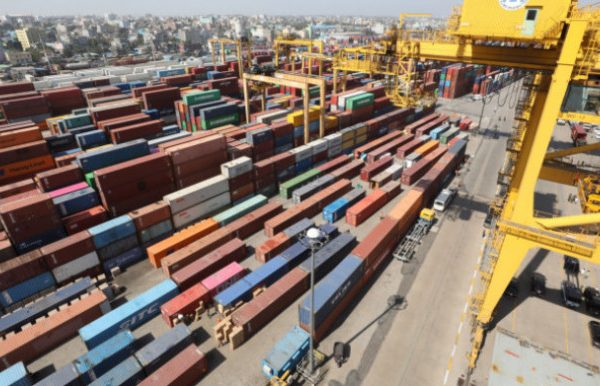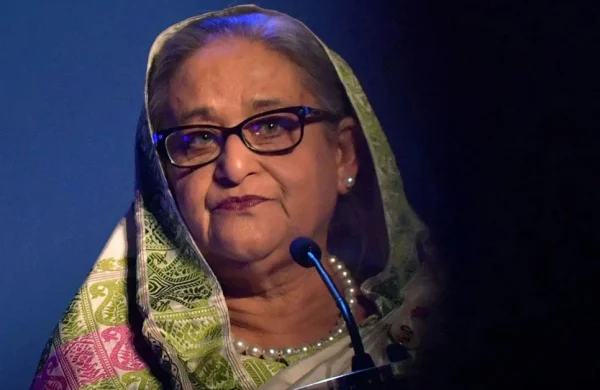World Environment Day: Integrated Strategic Approach Crucial in Restoring Ecosystem
- Update Time : Wednesday, June 5, 2024

—Dr Kanan Purkayastha—
On 5 June World Environment Day (WED) will be celebrated around the world led by the United Nation Environment Programme (UNEP). Since the Stockholm conference on human development held on 5 June 1972, UNEP is celebrating the World Environment Day. On this day millions of people participate in environmental events and actions around the world.
The Kingdom of Saudi Arabia will host the 2024 WED. One of the reasons for selecting Saudi Arabia is that the Conference of Party 16 (COP16) to the UN Convention to Combat Desertification will be held in the Saudi capital Riyadh during 2-13 December 2024.
The theme of the day focuses on land restoration, desertification and drought resilience under the slogan “Our land. Our future. We are #GenerationRestoration.” This theme is very pertinent because according to the UN Convention to Combat Desertification approximately 40 per cent of the planet’s land is degraded, which is directly affecting half of the world’s population and threatening roughly half of global gross domestic product (GDP).
The number and duration of droughts has also increased by 29 per cent since 2000. 24 billion tonnes of fertile soil disappear every year. This means that if no action is taken, then an area equivalent to the entire arable land of India, which is essential for maintaining biodiversity and feeding the population, will be lost by 2050.
First we need to understand what desertification and land restoration means. Desertification is the process by which vegetation in dry lands decreases and eventually disappears. Human activities, including deforestation and the overexploitation of aquifers, accelerate desertification.
The effects of climate change and extreme weather phenomena such as droughts, hurricanes and fires play a part of it. Land restoration refers to the process of halting degradation by rehabilitating degraded land, typically through activities like reforestation, soil conservation and the protection of natural process. The overall aim is to enhance biodiversity, restore ecosystem and mitigate climate change impact.
As far as the climate change mitigation issue is concerned, land use is responsible for eleven per cent of carbon dioxide emission in the atmosphere. This means that we need to halt and reverse deforestation and scale up finance to support developing countries to adapt to violent weather, protect nature and support SDGs. Economists suggests that every dollar invested in ecosystem restoration creates up to 30 dollars in economic benefits.
Regarding the theme of the WED, another issue pertinent to discuss here is the concept of land degradation neutral (LDN) planet. In 2012 the action to protect land from degradation was introduced by United Nation, which means that land degradation must be zero.
It encourages the implementation of various steps to achieve LDN. The LDN Programme, which was established in response to the LDN-related decisions, aims to allow the interested countries to identify their targets and associated measures to fulfil the LDN goals by 2030.
In Bangladesh, soil erosion is a big problem. One estimate suggests that 50-60 tons per hectare per year is eroded. Some estimates indicate the land degradation based on risk ranking and identified area of land severely degraded in Bangladesh is 3.08 million hectares.
So, Bangladesh showed her interest to be a part of LDN target setting programme in 2015 and set six LDN targets to reverse land degradation by 2030. Research suggests that though some progress have been made in some targets, the rate of deforestation, landslides, soil erosion, riverbank erosion and intrusion of salinity has yet to achieved.
Sometimes geopolitical reasons can be a constraint for achieving such targets. For example, migrants settled in hill tracts and forest areas can destroy local ecosystems. It is necessary to augment the soil governance and develop a soil conservation act to halt land degradation and enhance soil security in Bangladesh. Reforestation can play an important part.
I am aware that in Bangladesh, Ministry of Environment, Forest and Climate Change has identified land degradation as a major issue and also setup some goals to address this for next several years. I am also aware that Environment Conservation Act 1995 is the main act governing environmental Protection in Bangladesh.
However, there is a need for integrated approach. Because, it is not the case that one can manage one environmental problem at a time; rather restoration of land is a combination of many issues such as biodiversity, local economy for the community and climate adaptation.
So, a strategy is needed for safeguarding soil. Then this strategy can be used for implementing various government rules and regulations. Also, some statutory instrument and code of practice will be needed to implement the Acts.
It is to be noted that 6,000 years ago, the Sahara Desert was a grassland covered with vegetation. The oscillations of the Earth’s axis turned this area of the planet from an orchard to a sandy area where almost nothing can grow. It was considered a natural desertification, but the desertification that is happening currently at an accelerated rate, such as in some areas of Morocco, are the result of human activity and climate change.
Above all, ecosystems support all life on earth. Land restoration is a key pillar of the UN Ecosystem Restoration Programme which aims to prevent, halt and reverse the degradation of ecosystems on every continent and in every ocean. By restoring land, we restore life, restore our economies, restore our communities, and sustain the biologically diverse world. We cannot stop the climate crisis today, biodiversity loss tomorrow, and land degradation the day after. We need to tackle all these issues together. This integrated strategic approach we should harness further.
___________________________________
The Writer is a UK based Academic, Advisor (Science & Environment), Columnist and Author



















